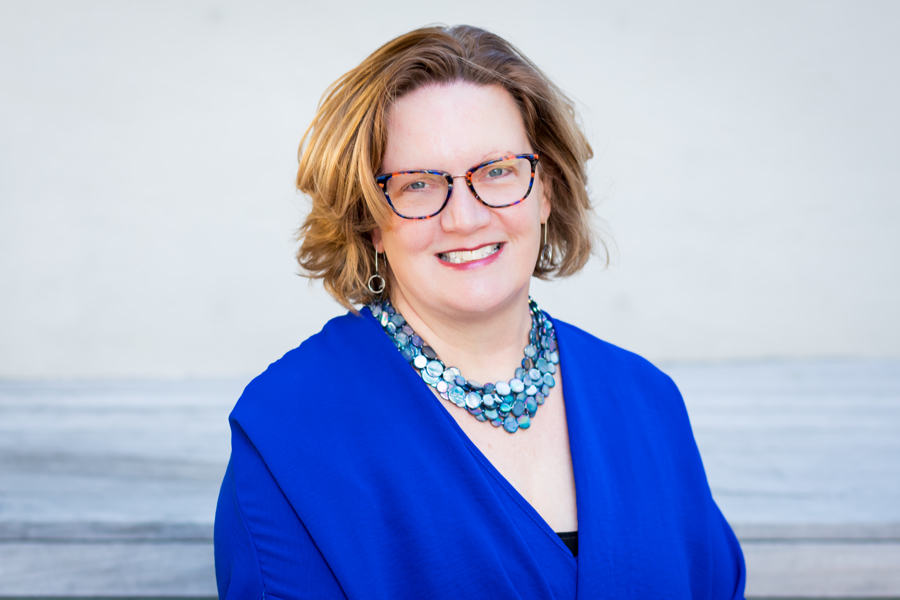Choosing Transformation Over Neutrality in Philanthropy

 As part of the annual celebration of National Philanthropy Day, U.S. chapters of the Association of Fundraising Professionals recognize individuals and organizations in their communities for their exemplary commitment to philanthropy. In November 2018 the Washington DC Metro Area Chapter named Nancy Withbroe, CFRE, COO & Chief of Staff at the National Women’s Law Center, as Outstanding Fundraising Professional in recognition of her leadership – especially her role in launching the TIME’S UP Legal Defense Fund and her efforts to advance ethical fundraising and equitable organizational management by mentoring young professionals and modeling inclusive leadership throughout her career. Following are the remarks she gave at the awards luncheon.
As part of the annual celebration of National Philanthropy Day, U.S. chapters of the Association of Fundraising Professionals recognize individuals and organizations in their communities for their exemplary commitment to philanthropy. In November 2018 the Washington DC Metro Area Chapter named Nancy Withbroe, CFRE, COO & Chief of Staff at the National Women’s Law Center, as Outstanding Fundraising Professional in recognition of her leadership – especially her role in launching the TIME’S UP Legal Defense Fund and her efforts to advance ethical fundraising and equitable organizational management by mentoring young professionals and modeling inclusive leadership throughout her career. Following are the remarks she gave at the awards luncheon.
In 1991, I moved to Washington during the weekend when Anita Hill testified at Clarence Thomas’ confirmation hearings. Rather than unpacking and job hunting, I was glued to the TV.
Then I met Paula Levy. I wanted to work for an organization that was committed to women and girls, so I applied to be Paula’s assistant in the development office at the Girl Scout Council of the Nation’s Capital. I had zero interest in fundraising. But Paula ended up giving me first job in philanthropy.
Through supporting Paula, the then-new CEO, Jan Verhage, and Deputy Director Sandra King-Shaw, I had a front-row seat as that powerhouse team leveraged philanthropy to transform the lives of girls with every dollar they raised.
I saw how they worked with communities in church basements and around kitchen tables to learn what programs would be meaningful for the low-income girls and girls of color they wanted to reach. I watched as they made their case to people with financial resources and worked alongside women in those neighborhoods to put those dollars to work. I never forgot the dignity, respect and love with which they worked.
27 years later, I was glued to my TV again, watching another brave woman come forward with her story.
And in the dark days following this latest, brutal Supreme Court nomination fight, I read with horror as some leaders in our sector celebrated Brett Kavanaugh’s confirmation as a win for philanthropy. They cited it as the culmination of decades of investments in nonprofits like the Federalist Society that are at the forefront of conservative legal thinking.
As Caitlin Duffy of the National Committee for Responsive Philanthropy first noted, this is not a time to be celebrating “traditional philanthropy.” Especially not when it was used to advance white supremacy and patriarchy.
And this made me realize: our nation – and our field – are at a crossroads. And at this critical juncture, we, as fundraising professionals, have a choice to make. Do we take a backseat and pretend that our work is neutral, and that doing so is an asset? Or, do we embrace the unique positioning we have to transform philanthropy. To serve humanity, instead of neutrality. To center equity, instead of bias.
I choose transformation, and I invite you all to join me in holding ourselves to a higher standard in three ways.
First – We must examine our own individual and institutional biases and how these influence norms and practices.
This includes whom we hire, mentor, and promote, and how much we pay them.
AFP’s 2017 compensation study shows that the average salary of men in our field is 25% higher than that paid to women. And the average salary of white fundraisers is 5% more than salaries of fundraisers of color.
At the National Women’s Law Center we are doing intense work to learn about bias and transform our culture into one in which there is no room for statistics like these.
We are committed to practicing transparency, accountability and continuous learning. And we’re committed to seeing those values show up internally. This is complicated, sensitive work, but we know that it will make us more effective at advancing our mission.
Second – We must insist that the organizations for which we work disrupt bias and center marginalized groups in their programs. As fundraisers we have the opportunity – and the responsibility – to inform programmatic work that is fueled by the money we raise.
My previous role at the Law Center was Vice President for Development and Strategy. I facilitated the strategic planning process that led to the internal work I just described as well as to projects like our Let Her Learn initiative led by my colleagues Nia Evans and Adaku Oneyka-Crawford. They partnered with 20 girls of color who co-authored our Dress Coded report, funded by the Gates Foundation, that highlights how dress codes in D.C. public schools promote race and sex discrimination, particularly among Black girls.
Lastly – We must demand that philanthropy support social justice, particularly to strengthen our organizations so that they are more equitable and to invest in worrk and institutions led by women of color. Women and girls of color still only receive 2 percent of philanthropic investments.
We must shift our mindset from an outdated, white, patriarchal model of charity and instead seek out funding that is grounded in frameworks like the Ford Foundation’s BUILD program. Ford believes that stronger, more equitable organizations will be more effective at advancing social change. I couldn’t agree more.
This program is supporting the Law Center with a 5-year, general support grant and considerable additional resources such as consultants and learning communities.
In his new book, Decolonizing Wealth, Edgar Villanueva writes, “Money itself is neutral. It should and can be a tool of love, used to facilitate relationships, to help us thrive.” I challenge all of us here today to remember that as fundraisers and as philanthropists, our work is not neutral. We have the power to use money as a tool of community transformation – as Paula and my colleagues at the Girl Scouts did years ago. We have the opportunity to use it to cultivate hope and joy.
Let’s embrace that power and that opportunity, and together not only save our democracy, but also to make a more beautiful and just world.

